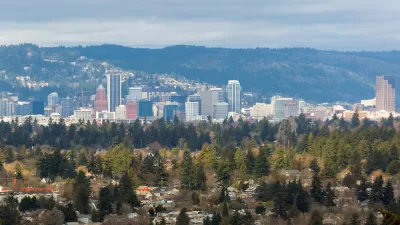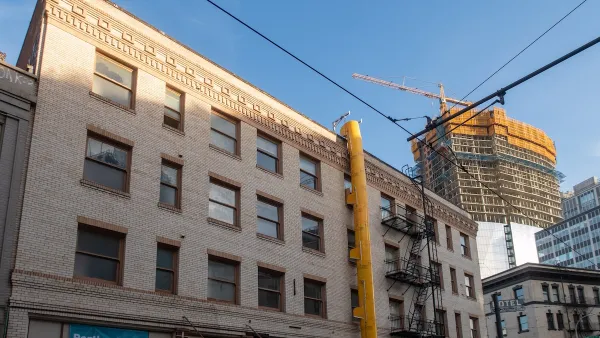Plans that focus on giving funds to renters and home buyers won't make housing affordable, and can inflate housing prices and rents.

In commentary for City Observatory, Joe Cortright argues that to address rising housing costs, cities need to reconsider supply and demand. "Rent and home purchase subsidies may help out a few individuals, but only at the cost of making the affordability problem worse for everyone else," Cortright says.
But that hasn't stopped policy makers from trying. "In Vancouver, the British Columbia provincial government has announced that it will match the down-payment that first-time homebuyers make to purchase a new residence," Cortright points out. Meanwhile in Portland, "… local landlords group has proposed that the state instead enact a rental subsidy, roughly modeled on the federal Section 8 voucher program. The proposal is that the state would allocate something on the order of about $20 million per year to provide rent subsidies of around $100 per month to as many as 20,000 low and moderate income households."
These demand-side solutions will benefit some, but the supply problem is likely to persist. Progressive programs to aid low income renters will help those who are organized and informed enough to access them. But, others will be negatively effected by more money being pumped into the system. In cities like Vancouver and Portland, which are already popular, stoking demand may be counterproductive.
FULL STORY: How not to fix housing affordability

Planetizen Federal Action Tracker
A weekly monitor of how Trump’s orders and actions are impacting planners and planning in America.

Maui's Vacation Rental Debate Turns Ugly
Verbal attacks, misinformation campaigns and fistfights plague a high-stakes debate to convert thousands of vacation rentals into long-term housing.

Restaurant Patios Were a Pandemic Win — Why Were They so Hard to Keep?
Social distancing requirements and changes in travel patterns prompted cities to pilot new uses for street and sidewalk space. Then it got complicated.

In California Battle of Housing vs. Environment, Housing Just Won
A new state law significantly limits the power of CEQA, an environmental review law that served as a powerful tool for blocking new development.

Boulder Eliminates Parking Minimums Citywide
Officials estimate the cost of building a single underground parking space at up to $100,000.

Orange County, Florida Adopts Largest US “Sprawl Repair” Code
The ‘Orange Code’ seeks to rectify decades of sprawl-inducing, car-oriented development.
Urban Design for Planners 1: Software Tools
This six-course series explores essential urban design concepts using open source software and equips planners with the tools they need to participate fully in the urban design process.
Planning for Universal Design
Learn the tools for implementing Universal Design in planning regulations.
Heyer Gruel & Associates PA
JM Goldson LLC
Custer County Colorado
City of Camden Redevelopment Agency
City of Astoria
Transportation Research & Education Center (TREC) at Portland State University
Jefferson Parish Government
Camden Redevelopment Agency
City of Claremont





























